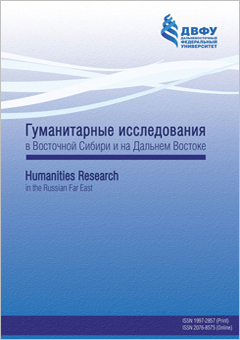To the issue of the Confucian factor in the genesis of capitalism in China
DOI:
https://doi.org/10.24866/1997-2857/2022-2/78-85Keywords:
China, Confucianism, ethics, capitalism, M. Weber, huaqiaoAbstract
The article analyses the role of the Confucianism in the development of capitalism in post-1978 China. Classical approach of Max Weber, one the one hand, and the number of researchers working from the 1960s, on the other, seemingly come to the opposite conclusions. Several characteristics of Chinese culture, Confucian in its origins – clan-like structure of society and lack of constructivist ethical attitude towards the universe can serve both as an obstacle to capitalistic development and as a support for it. According to the authors, this contradiction may be resolved by tying Confucian working ethics to the three-factor system of capitalistic development composed of ethical motivation, economical motivation and overseeing administrative system.
Downloads
References
Арташкина Т.А., Ван Ифэй. Китайская традиционная культура как духовная и идеологическая основа китайской корпоративной культуры // Общество: философия, история, культура. 2018. № 11. С. 127–134.
Вебер М. Хозяйственная этика мировых религий: Опыты сравнительной социологии религии. Конфуцианство и даосизм. СПб.: Владимир Даль, 2017.
Деметрадзе М.Р. Модернизация на Тайване: сочетание конфуцианства с капитализмом // Общественные науки и современность. 2018. № 6. С. 69–78.
Дружинин Н.Л., Мисько О.Н. Модернизация национальной экономики: исторический опыт Франции и Японии // Вестник Санкт-Петербургского университета. Экономика. 2011. № 3. С. 49–59.
Каретина Г.С. Конфуцианство в процессе модернизации Китая // Известия Восточного института. 2015. № 2. С. 3–9.
Красильщиков В.А. Консервативная модернизация в Восточной Азии: достижения и пределы // Идеи и идеалы. 2019. Т. 11. № 3. Ч. 2. С. 231–263.
Acemoglu, D., 2000. Political losers as a barrier to economic development. The American Economic Review, Vol. 90, no. 2, pp. 126–130.
Cao Shixiong, 2012. Why China’s approach to institutional change has begun to succeed. Economic Modelling, Vol. 29, no. 3, pp. 679–683.
Epstein, S.R., 1999. The rise and decline of Italian city-states. Working paper no. 51/99. London: London School of Economics.
Gelderbloom, O. and Jonker, J., 2004. Completing a financial revolution: the finance of the Dutch East India trade and the rise of the Amsterdam capital market, 1595–1612. The Journal of Economic History, Vol. 64, no. 3, pp. 641–672.
Hudson, G., 2017. 1688 and all that: property rights, the Glorious Revolution and the rise of British capitalism. Journal of Institutional Economics, Vol. 13, no. 1, pp. 79–107.
Jochim, C., 1992. Confucius and capitalism: views of Confucianism in works on Confucianism and Economic Development. Journal of Chinese Religions, Vol. 20, no. 1, pp. 135–171.
Kim, S.-K., 1992. Confucian Capitalism: Recycling Tradition. Telos, no. 94, pp. 18–25.
Poznanski, K.Z., 2015. Confucian economics: the world at work. World Review of Political Economy, Vol. 6, no. 2, pp. 208–251.
Shirk, S., 1990. «Playing to the provinces»: Deng Xiaoping’s political strategy of economic reform. Studies in Comparative Communism, Vol. 23, no. 3-4, pp. 227–258.
Shovlin, J., 2003. Emulation in eighteenth-century French economic thought. Eighteenth-Century Studies, Vol. 36, no. 2, pp. 224–230.
Van Bavel, B.J.P., 2010. The medieval origins of capitalism in the Netherlands. Bijdragen en mededelingen betreffende de geschiedenis der Nederlanden, no. 125, pp. 45–79.
Yeung, Y., Lee, J. and Kee, G., 2009. China’s special economic zones at 30. Eurasian Geography and Economics, Vol. 50, no. 2, pp. 222–240.
Downloads
Published
Issue
Section
License
Copyright (c) 2022 Дмитрий Васильевич Конончук, Илья Олегович Смирнов

This work is licensed under a Creative Commons Attribution-NonCommercial-NoDerivatives 4.0 International License.














